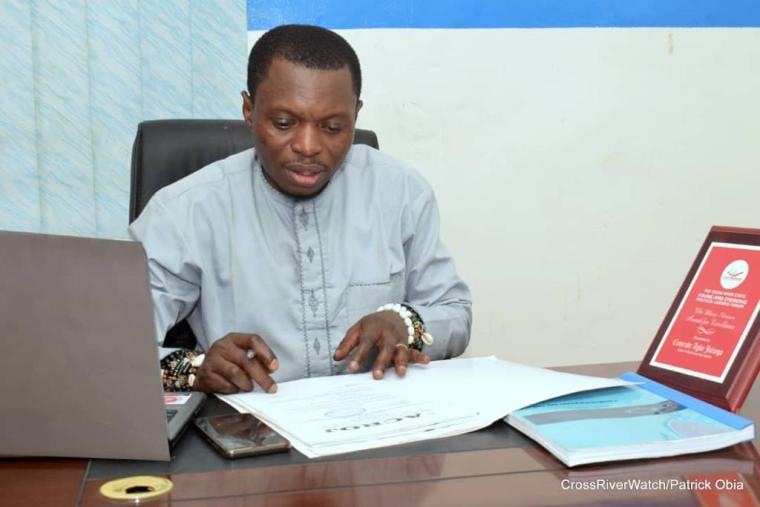Abuja, January 26, 2023 – Authorities in Nigeria should swiftly drop the cybercrime charges against journalist Agba Jalingo, cease harassing him for his work, and reform the country’s laws to ensure journalism is not criminalized, the Committee to Protect Journalists said Thursday.
On December 8, 2022, authorities in the southern Nigerian state of Cross River filed cybercrime charges against Jalingo, publisher of the privately owned news website CrossRiverWatch, according to a report by the privately owned news website Sahara Reporters and a charge sheet reviewed by CPJ. Jalingo told CPJ via messaging app that he is expected in court on February 14, 2023.
Authorities charged the reporter under two counts of Section 24 (1)b of Nigeria’s Cybercrimes Act over his outlet’s June 2022 report on Elizabeth Alami Frank Ayade, the sister-in-law of Governor Ben Ayade. If convicted, Jalingo could be imprisoned for three years and fined 7 million naira (US$15,200).
“Nigerian authorities should drop their prosecution and legal harassment of Agba Jalingo and allow him to work without fear of arrest,” said Angela Quintal, CPJ’s Africa program coordinator, in New York. “Lawmakers in Nigeria should recognize that their country’s Cybercrime Act has been repeatedly used to prosecute the press and reform it to ensure journalism is not criminalized.”
CPJ has repeatedly documented the use of Nigeria’s Cybercrimes Act to detain and charge journalists for their work.
The June 30, 2022, CrossRiverWatch article alleged that Elizabeth Ayade paid someone else to take an examination for her while in law school. The charge sheet accuses Jalingo of publishing falsehoods and says the publication intended to cause Ayade “annoyance, ill will and insult.”
Jalingo was previously arrested on August 19, 2022, over the same article, after Elizabeth Ayade filed a defamation and cyberattack complaint to police and requested the outlet retract the report and pay 500 million naira (US$1,086,300) in damages or face litigation. As of January 26, the report remains online.
Fidelis Ogbobe, the prosecutor in the case, told CPJ by phone that he did not regard Jalingo as a journalist and said the charges followed Jalingo’s refusal to retract the publication, which Ogbobe described as a “falsehood.” When CPJ inquired why Jalingo was not considered a journalist and asked additional questions, the line disconnected, and Ogbobe did not respond to subsequent calls.
In 2019 and 2020, authorities detained Jalingo for nearly six months and charged him with cybercrime and other offenses. The charges were later dropped, and the regional Economic Community of West Africa court ordered Nigerian authorities to pay Jalingo compensation for his detention in July 2021. As of January 26, Jalingo said he has yet to receive any payment.
[Editors’ Note: The fifth paragraph was updated to illustrate how broadly the cybercrimes act has been used against journalists.]
